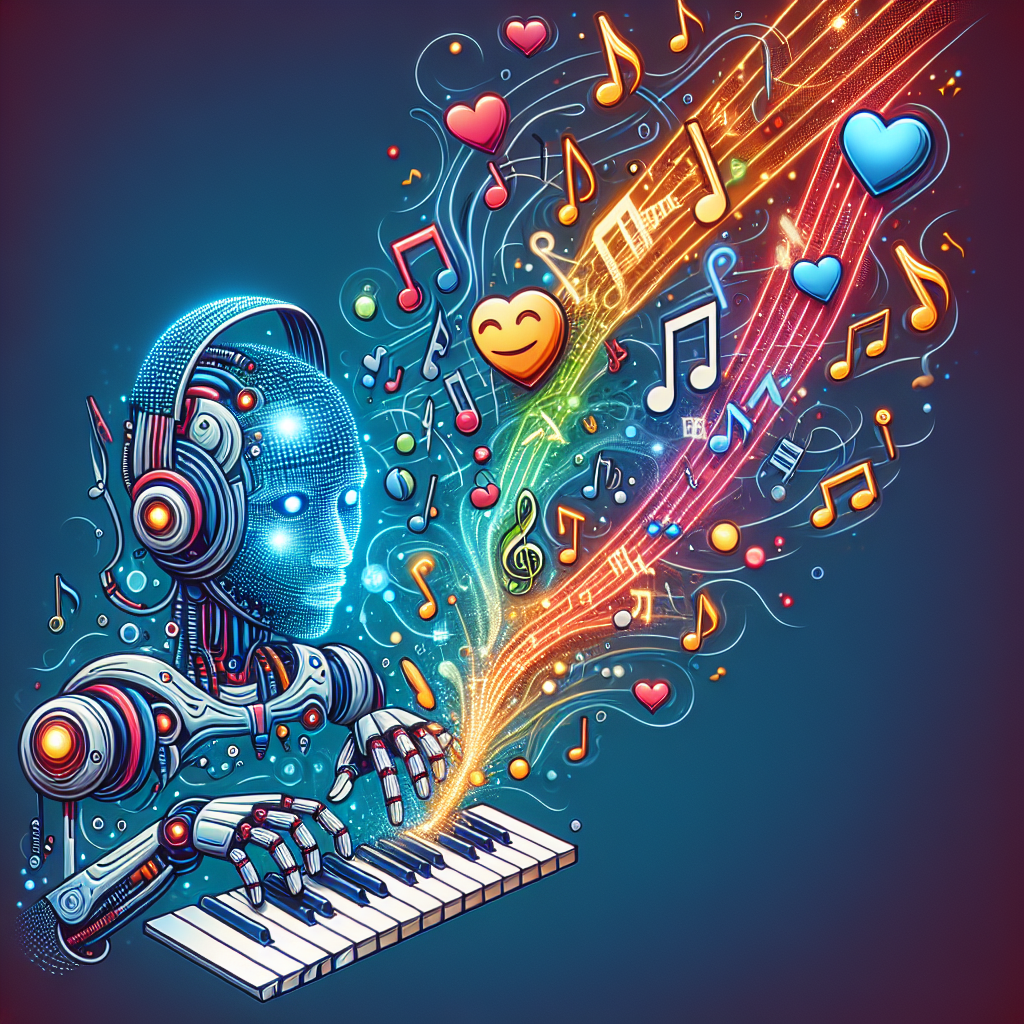As technology continues to advance, one question that has been on many people’s minds is whether AI can create music that moves us emotionally. Can a machine truly evoke the same feelings and emotions as a human musician? The answer to this question is complex and multifaceted, as AI continues to push the boundaries of what is possible in the realm of music composition.
AI-generated music has come a long way in recent years, with programs and algorithms becoming increasingly sophisticated in their ability to compose melodies, harmonies, and even lyrics. These AI systems are able to analyze vast amounts of musical data, learning patterns and structures that can then be used to create new and original compositions. Some AI music programs are even capable of mimicking the style of famous composers or bands, creating music that sounds remarkably similar to the work of human musicians.
But can AI music truly evoke emotion in the same way that music created by humans can? This is a difficult question to answer definitively, as emotions are subjective and can vary greatly from person to person. However, many people have reported feeling moved by AI-generated music, finding it to be beautiful, haunting, or even inspiring. In some cases, listeners have been unable to distinguish between music created by AI and music created by humans, highlighting the impressive capabilities of these programs.
One of the key arguments in favor of AI-created music is that it has the potential to push the boundaries of what is possible in music composition. AI programs are not limited by the constraints of human creativity, allowing them to explore new and innovative approaches to music that may not have been possible otherwise. This can lead to the creation of music that is truly unique and groundbreaking, challenging our preconceived notions of what music can be.
On the other hand, some critics argue that AI-generated music lacks the soul and emotional depth that is present in music created by humans. They argue that AI music is cold and mechanical, lacking the warmth and humanity that comes from a human musician pouring their emotions and experiences into their work. While it is true that AI music may not have the same emotional resonance as music created by humans, it is important to remember that emotions are complex and multifaceted, and can be evoked in many different ways.
Despite these criticisms, AI music continues to gain popularity and recognition in the music industry. Many musicians and composers are embracing AI technology as a tool to enhance their creativity and explore new musical possibilities. AI programs can help musicians generate ideas, experiment with different sounds and styles, and even collaborate with other musicians in ways that were previously impossible. In this sense, AI music can be seen as a valuable tool for musicians to expand their creative horizons and push the boundaries of what is possible in music composition.
In conclusion, the question of whether AI can create music that moves us emotionally is a complex and nuanced one. While AI music may lack the emotional depth and soul of music created by humans, it has the potential to push the boundaries of what is possible in music composition and open up new creative possibilities. As technology continues to advance, it will be interesting to see how AI music evolves and how it is integrated into the music industry. Ultimately, the future of AI music is still uncertain, but one thing is clear: AI has the potential to revolutionize the way we think about and create music.
FAQs:
Q: Can AI truly evoke emotions in the same way that human musicians can?
A: While AI music may not have the same emotional depth and soul as music created by humans, many people have reported feeling moved by AI-generated music. Emotions are subjective and can vary greatly from person to person, so it is possible for AI music to evoke emotions in some listeners.
Q: How can AI music push the boundaries of music composition?
A: AI programs are not limited by the constraints of human creativity, allowing them to explore new and innovative approaches to music. AI music can challenge our preconceived notions of what music can be, leading to the creation of music that is truly unique and groundbreaking.
Q: Are there any limitations to AI-generated music?
A: While AI music has come a long way in recent years, there are still limitations to what AI programs can achieve. Some critics argue that AI music lacks the emotional depth and soul of music created by humans, while others point to the potential for AI music to become repetitive or formulaic.
Q: How are musicians and composers using AI technology in their work?
A: Many musicians and composers are embracing AI technology as a tool to enhance their creativity and explore new musical possibilities. AI programs can help musicians generate ideas, experiment with different sounds and styles, and even collaborate with other musicians in ways that were previously impossible.

